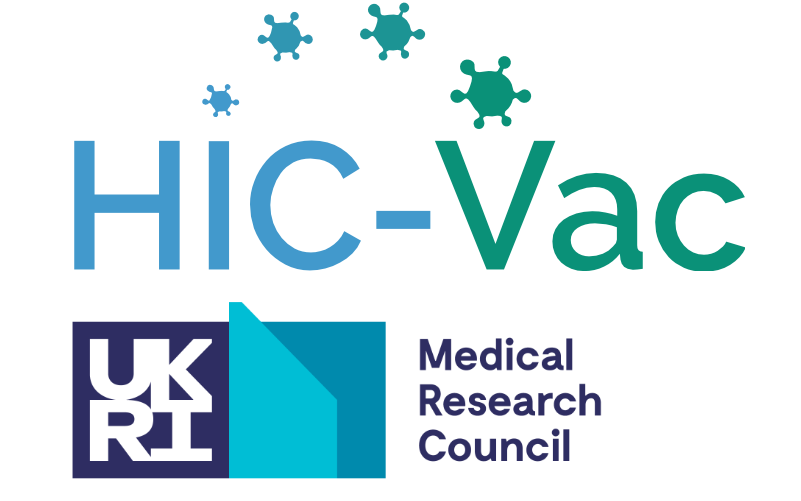The MRC and BBSRC announced a call for ‘Networks in Vaccine R&D’ in late 2016. This call addressed the early stages of the vaccine pipeline and aimed to support research communities to engage in innovative and collaborative research to address key bottlenecks in preclinical and discovery R&D. This call forms part of the MRC and BBSRC’s activities under the Global Challenges Research Fund (GCRF) and requires Networks to address vaccine R&D challenges primarily relevant to the health or prosperity of low and middle-income countries (LMICs) on the Organisation for Economic Co-operation and Development list (more about the rationale and goals of the Networks here).
As a result of this call, five Networks (including HIC-Vac) were awarded at a total of £9.4 million. These Networks encompass a wide range of topics in vaccinology: intracellular pathogens, veterinary vaccinology, human challenge models, pregnant women & neonatal immunization, and bacterial vaccinology. The Networks will provide workshops and training activities for Network members as well as regularly issuing small scale pump-priming grants.
Each Network is open to new members to join, with further details available on their websites and through the contacts below. Here is a summary of the other four Networks:
The VALIDATE Network based at the University of Oxford aims to promote vaccine R&D for complex intracellular pathogens that cause significant disease burden in LMICs. The initial focus is on Mycobacterium tuberculosis (which causes TB), Leishmania species (leishmaniasis), Burkholderia pseudomallei (melioidosis) and Mycobacterium leprae (leprosy). The Network is creating an engaged and interactive community of researchers who are forming new cross-pathogen, cross-continent, cross-species and cross-discipline collaborations, generating new ideas, taking advantage of synergies and quickly disseminating lessons learned across the Network, with the aim of together making significant progress towards vaccines against the focus pathogens. Key interests are in vivo research, cross-pathogen studies, projects promoting the One Health agenda, and collaborative projects involving LMICs and early career researchers.
Contact: Samantha Vermaark, VALIDATE Network Manager samantha.vermaak@ndm.ox.ac.uk
The International Veterinary Vaccinology Network based at the Roslin Institute, University of Edinburgh aims to establish a Network of UK and LMIC-based researchers that could form collaborations to address the challenges that are impeding vaccine development for major livestock and zoonotic diseases affecting agriculture in LMICs. This includes all species that are of agricultural significance in LMICs including (but not limited to) poultry, aquaculture, ruminants and swine with an emphasis on molecular and cellular biology work relevant to vaccine development. Key aims of the Network are to bring together partners from academia, industry and other sectors.
Contact: Dr Carly Hamilton, IVVN Network Manager IVVN@roslin.ed.ac.uk
The Immunisation in Pregnant Women and Neonates based at Imperial College London aims to build a sustainable Network of stakeholders from basic science, immunology, vaccinology, social sciences, industry, public health, national and international policy makers, to increase protection from infection in neonates via the safe and effective use of vaccines in pregnancy and in newborns. The Network will nurture discovery and implementation science in close collaboration with sites and investigators in LMICs, including via an IMPRINT fellowship scheme.
Contact: Dr Claudia Schacht, IMPRINT Network Manager c.schacht@LINQ-management.com
The Bacterial Vaccines (BactiVac) Network based at the University of Birmingham will accelerate the development of vaccines against bacterial infections, particularly those relevant to LMICs. The BactiVac Network will bring together academic, industrial and other partners involved in vaccine research against human and animal bacterial infections from the UK and LMICs. The Network will foster partnership and provide catalyst project and training funding to encourage cross-collaboration between academic and industrial partners.
Contact: Dr Johanna Dean, BactiVac Network Operations Manager j.e.dean@bham.ac.uk

